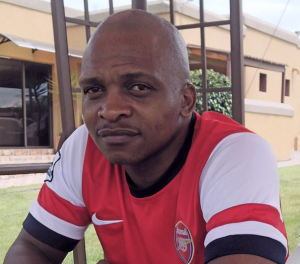
I nonetheless firmly believe that everyone of us must own and read a book if we aim to change the world for the better.
After-all 23 April is World Book Day, isn’t it?
I think I made the point on a different platform now the other day that I also believe if we are really a compassionate generation, we must have awaiting our next generation, our progeny, a small library in our own homes as part of their inheritance.
So yes, I am proud to say the few books I have and the once I will acquire going forward are in that sense meant to change the world.
And so I pause here to ponder: how does reading really change the world?
Care to ponder with me, dear reader?
I think it starts with me, the individual. You are by the way that individual too, if you are reading this.
I read Es’kia Mphahlele to learn the art of writing from one who I believe to be a literary gift to the world, a giant to have emerged from home, and I read him to understand my everyday situation from a different, ever so fresh perspective of the old timer.
I read Prof Mphahlele for the same reason, I read Ngugi wa Thiong’o and Chinua Achebe. They employ as I read them no delay revealing Maruping Phepheng – and my neighbour and my lover, well, to me.
I read everything I can lay my hands on about Sol T Plaatje to understand what happened at his stage of the struggle to free blacks. I also want to see what inspiration I can draw from him and his generation as I confront the same set of socioeconomic and political problems they faced in their day. (You could say that I admit in my last line that Plaatje and the rest failed in their historic mission, but that’s a subject for another day.)
I want to read Nobel Prize-winning authors J. Coetzee and Nadine Gordimer to understand how they did it, and how they can possibly be greater wordsmiths than Es’kia Mphahlele and Zakes Mda, for instance.
I read Siphiwo Mahala and Niq Mhlongo and Sabata-Mpho Mokae and Martin Koboekae and Tuelo Gabonewe and Thabiso Mofokeng and Given Mukwevhu and many other prolific writers of my generation when I want to understand afresh – and perhaps to also have a good laugh at the humorous characterization of human misery, squalor, oppression, hate, success, birth, death and famine of love.
I read Vonani Bila and Napo Masheane and Siza Nkosi and Lesego Rampolokeng and Icebound Makhele and many other poets when I need poetry to shake me awake from the (dis)comfort of my sorry shell.
I read Leo Tolstoy and Fyodor Dostoevsky to understand what they did back then with all the time they had without the benefit of advanced technology we have today: TV, cellphones, cinemas, Facebook, newspapers, Google, etc. Some say the large volume of books they produced was a direct function of the boredom they suffered at the time. Well, that’s probably true. But I read them anyway.
I read Dambudzo Marechera because he blows my mind – and then I read him again because – yes, I want to know why he blows my mind. Is it the force of the truth in his words? Is it his incisive, rare intellect? What?
I read the Portuguese author José Saramago’s ‘The Gospel According To Jesus Christ’ because I want to understand why he would say: “Men, forgive Him, for He knows not what He has done.”
I read Fanon and Biko and Sobukwe to consume critically the question of white supremacy and black inferiority, and then appeal to their various philosophies in a quest to contribute to the collapse of both complexes in my lifetime. Tall order you say? I say you need the fire like I do.
I read newspapers because they promise news, they promise enlightenment, and they promise entertainment. A few succeed, a lot fail, but I read them all the same.
Man, I even read notices pasted on street corners just to quench my thirst for more knowledge, everyday. Maybe I get to learn a new word – who knows?
And yes, I look forward – both in ‘times of war and of peace’, you know, to reading my wife’s next text message because, well, she is my favourite writer.
Enough about me.
Let’s hear you now my friend. Humour me endless, please. Why do you read?
Or perhaps I should offend you a bit and put the question differently: why do you not read, friend of mine? Do our children not deserve to look up to a generation of readers? Do they not deserve to grow reading books in their free time from the convenience of the mini library we would have ‘built’ throughout our reading years?
Perhaps our writers themselves write in a way that enjoins you to frown on books and reading. Perhaps they don’t incorporate you in their writing. But is this the reason why you are not reading? Are the writers generally that bad, really?
I ask all these questions because I believe it is only through understanding the real reasons why you, and I, don’t read will we decisively break that barrier, and finally enjoy the honey that drips freely from the pages of knowledge.
(Maruping Phepheng is a novelist. He wrote “What Happens In Hankaroo…” and “Of Anger and Revenge.” His twitter handle is @TheDukeP)
